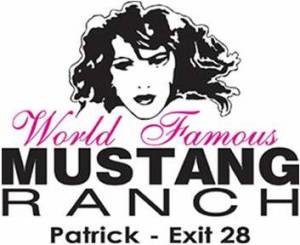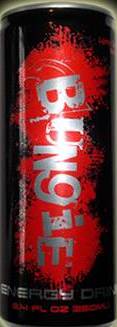Adidas-Payless Court Finds No Juror Misconduct, Reduces Damages to $65M
On Sept. 12, the District of Oregon explained the mysterious “juror letter” in the Adidas America, Inc. v. Payless Shoesource, Inc., trademark infringement case and found that it did not contain sufficient grounds for a new trial. (For background see STL post from June 25).
The court’s 29-page decision on Payless’ motions for a new trial also reduced Adidas’ $305 million award — said to be the largest ever in a trademark infringement case — to $65 million. (For additional background see STL post from May 6.)
The court confirmed the jury’s finding of $30,610,179 as damages in the form of a reasonable royalty and used its discretion under the Lanham Act to reduce the award based on disgorgement of profits to $19.7 million. It also denied Payless’ motion for a new trial if Adidas accepted a remittitur of the punitive damages award to $15 million.

Court’s cryptic docket entry three weeks after jury’s $305M verdict
While these decisions are noteworthy, the “juror letter” is what intrigued me. Ending three months of cryptic docket entries, emergency hearings, and sealed records, the court explained the situation as follows:
“Approximately three weeks after the jury returned its verdict, the court received a letter from Juror X requesting clarification of the ‘definition of the trial being over,’ because she ‘understood from [the court’s] instructions that we weren’t to actively engage on the Internet … in regard to the case until the trial was over.’ Juror X wanted to know, ‘[w]as that on Thursday, when everyone rested, or was it on Monday, after the verdict was read and we were excused as jurors?’
“On May 27, 2008, the court held a telephone conference to read Juror X’s letter to the parties. During the telephone conference, Payless’ counsel revealed that Juror X had contacted him by email on May 20, 2008 to ask if Payless was appealing the verdict. Payless’ counsel indicated that he also spoke with Juror X by phone for about twenty minutes. He answered some very general questions Juror X had about the appeal. Payless’ counsel asked if any outside influences or extraneous information found its way into the deliberations. Juror X was quite certain everybody followed the rules.”
Juror X nonetheless told the court in an evidentiary hearing the next day that she was concerned another juror may have violated the court’s instructions regarding out-of-court investigation by conducting research on the Internet.
On June 4, the court interviewed Juror Y, the juror who allegedly had done the research. Juror Y explained that he (or she — the court did not identify the juror’s sex) merely discussed prior knowledge from searching the Internet years before “about appeals and jury judgments and awards.” Juror Y denied looking up any material during the trial.
The juror said:
“I remember people were talking about award judgments, awarding — that [sic] wanted large amounts. They were getting real large, 7, 800 million. And I just said, from looking this up, from what I’ve seen before, if you get a real excessive amount, you’re just going to be shoved out.”
Judge Garr M. King found that such comments “simply do not constitute the type of extrinsic information the Federal Rules of Evidence seek to prohibit.”
The court concluded: “[t]here is no reasonable possibility that Juror Y’s general statements about the likelihood of appeal and the reversal of excessive verdicts could have affected the jury verdict. The testimony of Juror Y and Juror X indicate that only a few members of the jury heard the comments. Any discussion that followed took less than one minute. Further Jurors Y and X indicated that Juror Y made the comments at the very beginning of the jury’s two-day deliberation. There is no indication that anyone discussed the issue again. Finally, the possibility of appeal was peripheral to the issues that were before the jury and did not relate to any material fact or substantive law applicable to the case.”
Mystery solved.
The case cite is Adidas America, Inc. v. Payless Shoesource, Inc., No. 01-1655 (King, J.).
Local Media Spotlight Restaurant Trade Dress Trial
The Peso’s vs. Matador restaurant ripoff case starts Monday.
The lawsuit, which Peso’s Kitchen and Lounge owners El Diablo, Inc., and Brian Hutmacher filed against Mel-Opp & Griff LLC and the other owners of competing Tex-Mex restaurant The Matador, accuses the latter of copying the former’s distinctive menu and decor. (Previous STL coverage here and here.)
The local media has glommed onto the story, with an article in the Seattle Weekly and a spot on KING-TV (video, text).

KingTV’s shot of The Matador in Seattle’s Ballard neighborhood.
The Weekly story has nice color:
“On Super Bowl Sunday 2004, Brian Hutmacher wasn’t thinking about the point spread or Janet Jackson’s wardrobe malfunction. He was staring at the metallic, Mexican-inspired decor of the just-opened Matador restaurant in Ballard, thinking it looked a lot like his own wildly popular tequila-and-nachos late-night hangout, Peso’s.
“Then he saw the menu. The main entree page had 11 items. ‘Eight of those 11 items are identical in name, description, price, and preparation to what is on the menu at Peso’s,’ Hutmacher later wrote in a 20-page, obscenity-laced letter to one of Matador’s owners.”
The trial should be colorful, too.
It will be decided by King County Superior Court Judge Catherine Schaffer without a jury.
The case cite is El Diablo, Inc. v. Mel-Opp & Griff LLC, No. 07-2-01203-6 SEA (King County Super.).
Ninth Circuit Finds Mustang Ranch Purchasers Have Trademark Rights

The 2003 eBay purchasers of Nevada’s Mustang Ranch have trademark rights in that mark, the Ninth Circuit has decided.
The court’s Sept. 4 decision affirmed the District of Nevada’s rejection of plaintiff David and Ingrid Burgess’ claim that L. Lance Gilman and the other defendant purchasers of the notorious brothel from the U.S. government in a tax foreclosure auction had failed to acquire rights in the mark because of abandonment through nonuse or an assignment in gross.
With respect to abandonment through nonuse, the court found:
“The government came forward with evidence sufficient to rebut the presumption of abandonment that arose from the approximately four-year period of non-use, and the Burgesses were unable to carry their burden of strict proof that the government intended not to resume use of the trademark. Portions of the evidence presented at trial, including the testimony of the former Department of the Interior Solicitor Alf Brandt regarding both the March 10, 2003 press release announcing the decision to demolish the brothel buildings and the initial unsuccessful eBay auction, led the district court to conclude that the government was actively considering the various interests and repeatedly reassessing its position going forward. The government’s conduct, characterized as indecisiveness by the district court, was held insufficient to strictly prove that the government intended not to resume use of the trademark and, in our view, this conclusion was not clearly erroneous.”
With respect to the alleged assignment in gross, the court found:
“The district court also properly rejected the Burgesses’ argument that the transfer of the ‘MUSTANG RANCH’ mark to Cash Administration Services, LLC was a prohibited assignment in gross. The goodwill associated with the ‘MUSTANG RANCH’ mark, which is necessary to its survival, was intact at the time of the assignment and was transferred to the Gilman entities which then continued to associate the trademark with similar services following the sale. … The brothel buildings were sold with the ‘MUSTANG RANCH’ mark at the second eBay auction and were representative of the goodwill of the business. However, this in no way leads to the conclusion that, absent the buildings, the sale would have been in gross. There is evidence that substantial goodwill existed at the time of the assignment, and the district court’s finding consistent with this was not clearly erroneous.”
The case cite is Burgess v. Gilman, No. 07-15093, 2008 WL 4112787 (9th Cir. Sept. 4, 2008).
Electric Hendrix Appeals Western District's Infringement Decision
Not surprisingly, the marketers of Hendrix Electric vodka have decided to appeal.
On Aug. 7, Electric Hendrix, LLC, and the other defendants lost cross-motions for summary judgment in which Western District Judge Thomas Zilly found their HENDRIX ELECTRIC, HENDRIX ELECTRIC VODKA, JIMI HENDRIX ELECTRIC, and JIMI HENDRIX ELECTRIC VODKA trademarks infringe the AUTHENTIC HENDRIX, EXPERIENCE HENDRIX, and JIMI HENDRIX marks owned by plaintiffs Experience Hendrix, LLC, and Authentic Hendrix, LLC. (STL post on the decision here.)
The notice of appeal, filed Sept. 5, is not surprising since the summary judgment order all but halted defendants’ ability to sell their product. Not to mention that the Hendrix family hasn’t exactly shied away from litigation, or even trips to the Ninth Circuit, on similar issues before.
The case cite is Experience Hendrix, LLC v. Electric Hendrix, LLC, No. 07-338 (W.D. Wash.).
Bungie Sues Xtreme Beverages Over "Bungie" Mark
 On Aug. 27, Kirkland, Wash.-based video game maker Bungie, LLC, filed suit in the Western District against New Jersey-based energy drink maker Xtreme Beverages, LLC, and its owners for trademark infringement.
On Aug. 27, Kirkland, Wash.-based video game maker Bungie, LLC, filed suit in the Western District against New Jersey-based energy drink maker Xtreme Beverages, LLC, and its owners for trademark infringement.
At issue are the beverages defendants market under the names “Bungie Energy Drink” and “Bungie Sugar-Free Energy Drink,” which plaintiff claims infringe its federally-registered BUNGIE trademark in connection with computer games.
Plaintiff also is unhappy that defendants use the drinkbungie.com domain name and have applied to register their own BUNGIE trademark in connection with energy beverages.
Plaintiff alleges confusion is likely because it promoted its video games on beverages sold by PepsiCo, Inc.
Defendant has not yet answered plaintiff’s complaint.
The case cite is Bungie, LLC v. Xtreme Beverages, LLC, No. 08-1287 (W.D. Wash.).